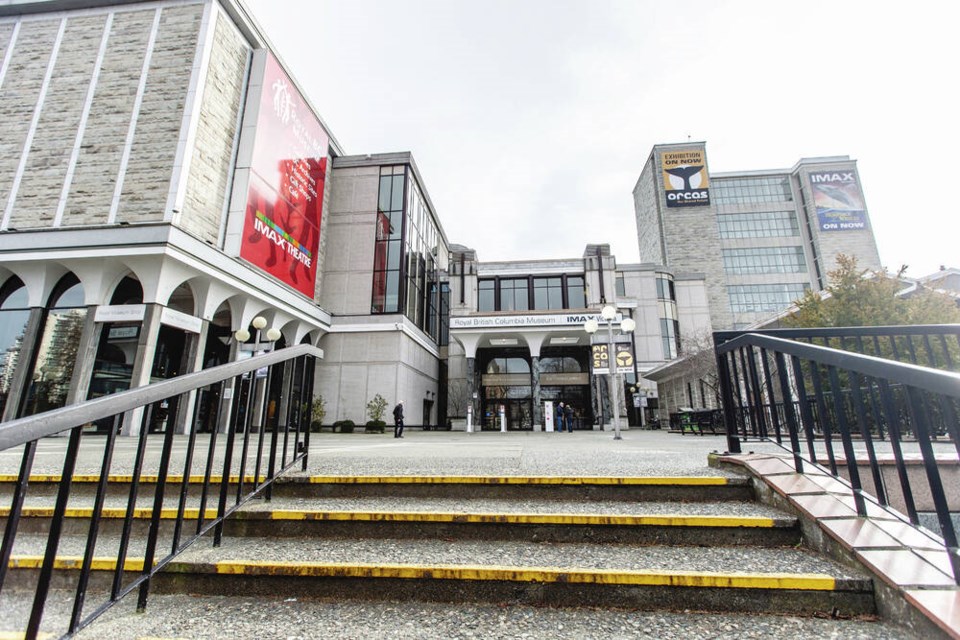The Royal B.C. Museum expects a big drop in admission revenue over the next year, with its third-floor galleries — including the Old Town and First People exhibits — closed as part of a “decolonization” process.
The museum’s service plan for the next four years, contained in this week’s provincial budget, cites “key financial and operational challenges” in the years ahead, including aging infrastructure at its Inner Harbour buildings and the potential for the pandemic to continue to affect the museum, archives and Imax theatre.
It’s also in the process of constructing a collections and research building in Colwood, that’s set for completion in 2025.
The museum said the second-floor galleries of its Inner Harbour building will be open, “but without a blockbuster exhibition, the value proposition for visitors is lower than during normal operations.” Ticket prices will be lowered for the year, and targeted revenue has been significantly reduced from the 2021 service plan, it says.
That means the facility will be more dependent on government funding. While it receives an annual grant from the province of $11.866 million, that usually represents just under half its core operating budget. The remainder is funded by admissions revenue, programming and licensing fees, sponsorships and philanthropic contributions — “all of which are variable funding sources.”
Operating expenses are expected to exceed revenues from 2021-22 to 2024-25, by amounts ranging from $5.2 million to $2.15 million each year over that period.
The museum has been at its current location since 1967 and the facility and its exhibits have not been substantially renovated or updated in more than 50 years. The buildings are considered to be at the “end-of-life” phase because they contain banned building materials and poor accessibility.
The service plan says that depending on the modernization project’s scope and budget — which has yet to be determined — the financial plan for the museum over the next three years will need to be updated.
It says the museum will work to offset its operating expenses through opportunities for “self-generated revenue,” including virtual learning and visits, pop-up exhibits through the province and more travelling exhibitions.
The first pop-ups are appearing in the Capital Regional District, where the museum is creating walking tours featuring displays in storefronts and shopping malls with a smartphone self-guided audio guide in partnership with Destination Greater Victoria. QR codes at the pop-up exhibit locations are designed to drive traffic back to Royal B.C. Museum website, with a specific focus on membership and learning.
Those virtual connections will also provide an opportunity to further engage with British Columbians on the future galleries, exhibitions and programming, the museum said.
Travelling exhibitions are larger-scale exhibits created by the museum team and rented out to other museums or cultural institutions.
The financial plan also calls for a review and streamlining of contracted services to increase the funds available for internal operations and building relationships with the public and stakeholders to increase donors, partner-relationships and future visitors.
Other income for museum comes from retail operations, corporate sponsorship and gifts in-kind (donated collections and artifacts). The Royal B.C. Museum Foundation has also made financial contributions through its endowments. The museum said it is focusing on growing business relationships and increasing its online sales, publishing revenue and licensing of its image banks.
dkloster@timescolonist.com



